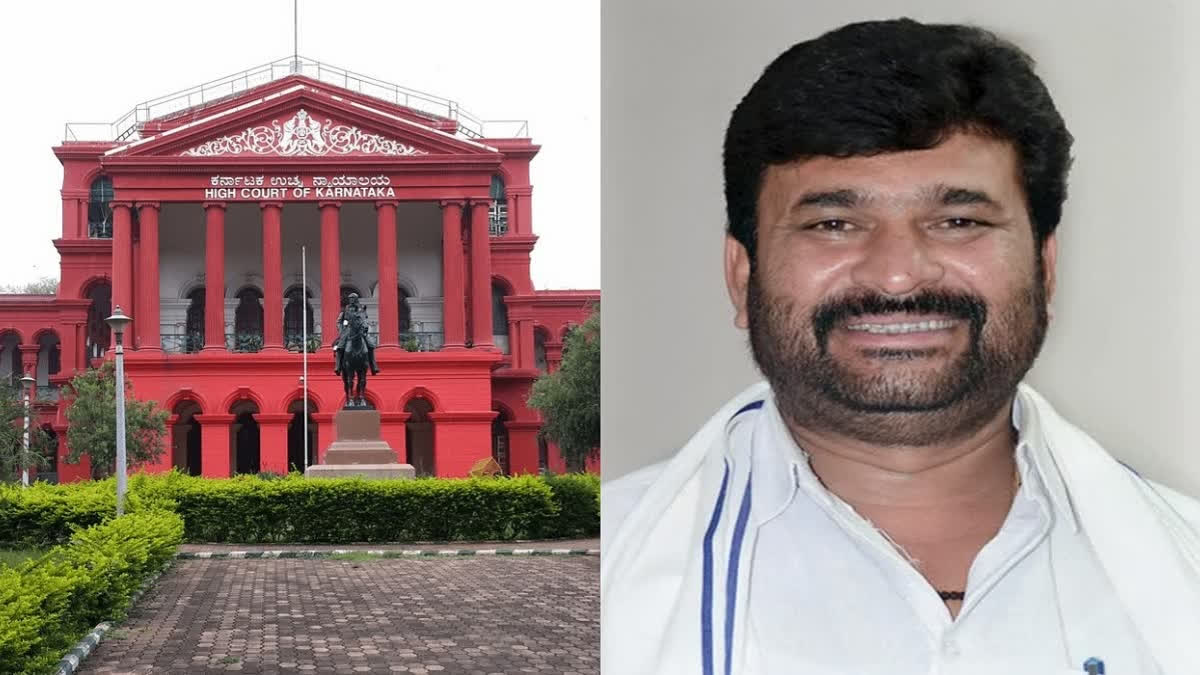Bengaluru: The High Court of Karnataka on Friday dismissed the petition filed by former Minister and Congress candidate from Dharwad Rural Assembly constituency Vinay Kulkarni seeking permission to stay in Dharwad for a month. Kulkarni was accused of conspiring in the murder of BJP Zilla Panchayat member Yogesh Gowda in 2016. In this case, the Supreme Court imposed four conditions while granting bail to Kulkarni, including that he cannot enter the Dharwad district, without the court's permission.
A single-judge bench headed by Justice K Natarajan, which heard the petitions filed by former minister Vinay Kulkarni, dismissed the petitions and said the reasons for the rejection would be explained in the order copy. During the hearing, the petitioner's counsel said that ''Vinay Kulkarni, was restricted from entering Dharwad. Now he is a Congress candidate in the Dharwad Assembly constituency. Hence, he requested to allow his entry''.
Also read: Aam Aadmi Party moves Karnataka High Court seeking national party status
Responding to this, the court asked, "Does the Congress High Command, which issued the ticket, not know that the applicant has been restricted from entering Dharwad? How they gave the ticket. Also, the trial court ordered the instructions of the Supreme Court. In that case, you can ask the Supreme Court. Why did you ask the question here,'' the court asked.
It may be recalled that Vijay Kulkarni was accused of conspiring in the murder of BJP Zilla Panchayat member Yogesh Gowda in 2016. He was a Cabinet minister in the Siddaramaiah-led Congress government. Later, the case was handed over to the CBI and Kulkarni was arrested.
In connection with the murder case, CBI registered an FIR against eight persons, including Vinay Kulkarni. He spent more than nine months in jail and finally obtained bail from the Supreme Court and the People Representatives Special Court in Bengaluru. In this case, the Supreme Court imposed four conditions while granting bail to Kulkarni, including that he cannot enter the Dharwad district without the court's permission.



